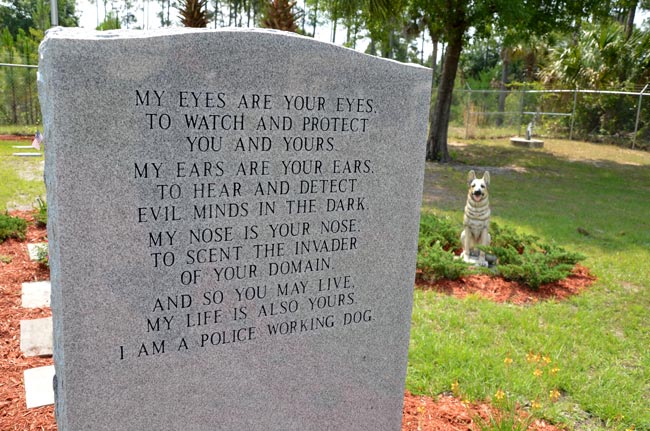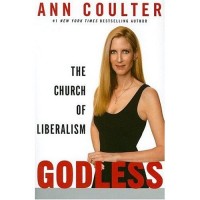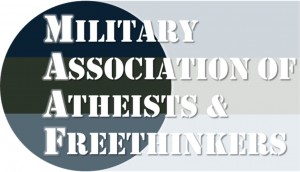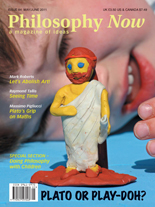
You’re welcome to send your Live Wire news tips or suggestions to [email protected].
Today’s Live Wire: Quick Links
- Lil Buck and Yo-Yo Ma
- Ann Coulter’s Church of Liberalism
- Erin McCaskill’s First Art Sale
- George Carlin’s Last Interview
- Atheists in the Military
- Rethinking Economic Growth
- Talking Philosophy With Children
- A Night at Ikea
- Dear Picasso
- The Book on Mormons
- Next-Gen Digital Books
- Poem: Cancer Is a Dirty Word
- A Few Good Links
![]()
Live Wire Rewinds
![]()
The best way to start the week: The Swan as you’ve never seen it before.
Ann Coulter’s Church of Liberalism
 Christopher Hitchens on Ann Coulter’s Godless: The Church of Liberalism, in The Liberal: “Since her books always pull enough of a crowd to put them on the bestseller list, the editors and fact-checkers at her publishing house evidently go on vacation when the manuscripts float in. For all her show of biblical learning, she does not know the meaning of the word “shibboleth”, for example. She attacks those who seek “the removal of ‘under God’ from the Pledge of Allegiance”, when the case is that the Pledge should be restored to its original form, which did not include those two words. Are not conservatives supposed to manifest great respect for ‘original intent’? And then there’s the crass choice of words: If Democrats ever dared speak coherently about what they believe, the American people would lynch them. Leave aside the fact that most of what Coulter adduces is taken straight from the very mouths of Democrats who are coming right out with it, and notice the clumsy elision that interchanges “liberal”, “Democrat” and “Left”(and skip over the unironic use of the word “coherently”), the term to avoid here would have been “lynch”. Never to be employed flippantly, this expression has a real-time and real-life significance, which was felt very onerously in quite recent memory. Its disappearance, and the abolition of what went with it, is admittedly not due to “Democrats”, who ran Dixie as a private fief for far too long, but does redound very much to the credit of those American liberals and – even worse! – leftists who provided most of the energy of the Civil Rights movement. […] Coulter, the super-patriot and flag-waver, is a true reactionary in that she yearns for the time when the keyword of her title, as in ‘Godless Communism’, was a mantra for the simple-minded. In a world where the true enemies of civilization are much, much more godly than the blonde goddess of the hard Right, Coulter is reduced to a blitzing of soft civilian targets – one redeemed only by its built-in tendency to fall so wide of the mark.” The full review.
Christopher Hitchens on Ann Coulter’s Godless: The Church of Liberalism, in The Liberal: “Since her books always pull enough of a crowd to put them on the bestseller list, the editors and fact-checkers at her publishing house evidently go on vacation when the manuscripts float in. For all her show of biblical learning, she does not know the meaning of the word “shibboleth”, for example. She attacks those who seek “the removal of ‘under God’ from the Pledge of Allegiance”, when the case is that the Pledge should be restored to its original form, which did not include those two words. Are not conservatives supposed to manifest great respect for ‘original intent’? And then there’s the crass choice of words: If Democrats ever dared speak coherently about what they believe, the American people would lynch them. Leave aside the fact that most of what Coulter adduces is taken straight from the very mouths of Democrats who are coming right out with it, and notice the clumsy elision that interchanges “liberal”, “Democrat” and “Left”(and skip over the unironic use of the word “coherently”), the term to avoid here would have been “lynch”. Never to be employed flippantly, this expression has a real-time and real-life significance, which was felt very onerously in quite recent memory. Its disappearance, and the abolition of what went with it, is admittedly not due to “Democrats”, who ran Dixie as a private fief for far too long, but does redound very much to the credit of those American liberals and – even worse! – leftists who provided most of the energy of the Civil Rights movement. […] Coulter, the super-patriot and flag-waver, is a true reactionary in that she yearns for the time when the keyword of her title, as in ‘Godless Communism’, was a mantra for the simple-minded. In a world where the true enemies of civilization are much, much more godly than the blonde goddess of the hard Right, Coulter is reduced to a blitzing of soft civilian targets – one redeemed only by its built-in tendency to fall so wide of the mark.” The full review.
See Also:
Erin McCaskill’s First Art Sale

It doesn’t sound like a big deal, but to a painter or a writer or a sculptor who sells a creation for the very first time, it’s an enormous deal, as it should be. So it was for Erin McCaskill, an 11th grader at Flagler Palm, Coast High School who, on Saturday evening (May 14), sold her first painting–‘Owl,’ a watercolor she painted last week. The piece sold for $65 during the Hollingsworth Gallery‘s latest show opening. McCaskill, who teaches art to younger students at Hollingsworth, was displaying her work in the Secca Tree Studios gallery, part of Hollingsworth’s recent expansion to accommodate the work of local artists. The studios combine working spaces for artists in the back and new gallery space up front. For McCaskill, the sale was a thrill painted all over her face Saturday evening–and doubly so, because it had gone to a stranger. A friend had proposed buying “Owl.” McCaskill refused, wanting the piece to sell on its own merits. “Even if it’s $65,” she says, “it could have sold for $1 and I’d have been excited still.” The point being that it sold. McCaskill, originally from New York, intends to go to Manhattan’s Hunter College after graduation, and eventually be an art teacher or professor.
See Also:
- Palm Coast’s SoHo: Secca Tree Studios Double Hollingsworth Gallery’s Arts Empire
- Thelma and Louise of Geometric Abstractions Ride Into Hollingsworth Gallery
- An Eye for a Lens: Art League’s Photography Show Brings Out Simpler Pleasures
George Carlin’s Last Interview
 George Carlin died in June 2008 at age 71. Jay Dixit had the last interview. From Psychology Today: “He spoke about the pride he took in his work. As a ninth-grade dropout, he said, it was gratifying to see his words quoted in textbooks, classrooms, and courtrooms. And he was proud to have inspired other comedy greats, who routinely called him to say, “If it weren’t for you, I wouldn’t be doing this.” As he looked back on his astonishingly prolific 50-year career—which includes 130 Tonight Show appearances, 23 albums, 14 HBO specials, three books, and one Supreme Court case—the interview became a sort of retrospective of his life. Finally, after two hours, he gently mentioned that his arm was getting tired from holding the phone. “I really appreciate all the thought you’ve put into all these questions. Really, it’s the most complete interview I’ve ever done,” he said. “Is it tomorrow yet? I think it is.”
George Carlin died in June 2008 at age 71. Jay Dixit had the last interview. From Psychology Today: “He spoke about the pride he took in his work. As a ninth-grade dropout, he said, it was gratifying to see his words quoted in textbooks, classrooms, and courtrooms. And he was proud to have inspired other comedy greats, who routinely called him to say, “If it weren’t for you, I wouldn’t be doing this.” As he looked back on his astonishingly prolific 50-year career—which includes 130 Tonight Show appearances, 23 albums, 14 HBO specials, three books, and one Supreme Court case—the interview became a sort of retrospective of his life. Finally, after two hours, he gently mentioned that his arm was getting tired from holding the phone. “I really appreciate all the thought you’ve put into all these questions. Really, it’s the most complete interview I’ve ever done,” he said. “Is it tomorrow yet? I think it is.”
A few questions and answers:
Q. How do you think about comedy and self-expression? Expressing what’s within vs. looking at the outside world and making observations?
Carlin: Self-expression is a hallmark of an artist, of art, to get something off one’s chest, to sing one’s song. So that element is present in all art. And comedy, although it is not one of the fine arts—it’s a vulgar art, it’s one of the people’s arts, it’s the spoken word, the writing that goes into it is an art form—it’s certainly artistry. So self-expression is the key to even standing up and saying, “Hey, listen to me.” Self-expression can be based on looking at the world and making observations about it or not. Comedy can also be based on describing one’s inner self—doing anecdotes, talking about your own fears. Woody Allen taps into a lot of self-analysis in his comedy. But I don’t think these things are mutually exclusive. I think self-expression is present at all times, and whether or not you’re talking about the outside world or your responses to it depends on the moment and the subject.
Q. You were central in the Supreme Court case in which justices affirmed the government’s right to regulate your “Seven Words You Can Never Say on Television” act on the public airwaves. How do you think about the role of vulgarity in your humor?
Carlin: I used to point out that when I was a little boy in the 40s, I was told to look up to and admire solders and sailors, policemen, firemen, and athletes, were objects of childhood hero worship. We all know how they talk. So apparently these words do not corrupt morally. This was the thing I couldn’t put together. I use the words because I’m from that ethos. I’m from the street in New York, hung around in a tough neighborhood. It was common to curse, you make your point. It’s a very effective language. I try not to overdo it. It’s never to shock. I know where it fits, it’s never to shock. There’s no shock value left in words. Humor is based on surprise, and surprise is a milder way of saying shock. It’s surprise that makes the joke.
Q. What’s the funniest bit you’ve ever heard?
Carlin: Sometimes jokes have a wonderful logic to them. I’ll give you one that, even to people that don’t mind mild cursing, bothers some people—especially women. Short joke. The wonderful thing about it is the logic of the joke, the ingenuity. Father and son, little son are out on the back porch, passing the day, father says to son, “Do you have perhaps any questions for me about sex?” And he says, “Well, yeah Dad, what is that hairy area on Mommy?” And the father says, “Well, that’s her vulva.” And the boy says, “Well then what’s a cunt?” And the father says, “That’s rest of Mommy.”
And that joke strikes a nerve, hits a chord—men who’ve been divorced more than twice really like that. It makes beautiful use of that man’s thought. To arrive at that distinction—to take it from the real to the figurative. From cunt as a sexual part to cunt as a term of derision for women, just as men are called assholes by certain women—and they deserve it. It’s funny how we use words. The fact that a mean woman is called a cunt and a mean man is called a prick. I have a long thing I’d like to write someday about language and the way we address each other.
See the full interview.
See Also:
Don’t Pray? Don’t Tell: Atheists in the Military
 From The Humanist: “The military’s ever-increasing inclination to promote religion within its ranks has drawn the white-knuckled ire of many, including secular activist Stuart Bechman. In his current role as the development director of the Institute of Humanist Studies, Bechman has a long history of promoting secularism and nontheist rights. His past experience includes serving as the president of Atheist Alliance International from 2008 to 2010 and sitting on the board of the Secular Coalition for America until 2010. Bechman doesn’t shy away from the issue of religion in the military: “A clear pattern of significant proselytizing, supported at the highest levels of the military, has been documented over the past two decades,” Bechman says. The history he speaks of is now crowned by the spiritual fitness test, an invasion of privacy Bechman denounces as “outrageously objectionable” and “inappropriate.” Many agree, including Chris Rodda, the senior research director of the Military Religious Freedom Foundation (MRFF) and author of Liars for Jesus: The Religious Right’s Alternate Version of American History. Rodda has been chronicling the military’s religiosity at the Huffington Post, and in August 2009 she documented congressional members involved with the efforts of the “Family” (a secretive religious organization that espouses a tyrannical relationship between the Bible, laissez-faire capitalism, and geopolitical power) to earmark tens of millions of dollars to erect churches on military bases around the country.” The full article.
From The Humanist: “The military’s ever-increasing inclination to promote religion within its ranks has drawn the white-knuckled ire of many, including secular activist Stuart Bechman. In his current role as the development director of the Institute of Humanist Studies, Bechman has a long history of promoting secularism and nontheist rights. His past experience includes serving as the president of Atheist Alliance International from 2008 to 2010 and sitting on the board of the Secular Coalition for America until 2010. Bechman doesn’t shy away from the issue of religion in the military: “A clear pattern of significant proselytizing, supported at the highest levels of the military, has been documented over the past two decades,” Bechman says. The history he speaks of is now crowned by the spiritual fitness test, an invasion of privacy Bechman denounces as “outrageously objectionable” and “inappropriate.” Many agree, including Chris Rodda, the senior research director of the Military Religious Freedom Foundation (MRFF) and author of Liars for Jesus: The Religious Right’s Alternate Version of American History. Rodda has been chronicling the military’s religiosity at the Huffington Post, and in August 2009 she documented congressional members involved with the efforts of the “Family” (a secretive religious organization that espouses a tyrannical relationship between the Bible, laissez-faire capitalism, and geopolitical power) to earmark tens of millions of dollars to erect churches on military bases around the country.” The full article.
See Also:
- Military Association of Atheists and Freethinkers
- Justice, Justice Shall You Pursue: Legal Analysis of Religion Issues in the Army
- Atheists Seek Chaplain Role in the Military
 Herman Daly in Seed: “What is growth? Is it a temporary process to arrive at a state that we will then want to maintain? Or is growth a process which is itself desirable and is supposed to go on forever? Right now nobody defines a state of sufficiency. For example, in a recent growth report financed by the World Bank, experts took great hope from the fact that several countries had managed to grow at 7 percent for 25 years. Their goal—7 percent growth for another 25 years—will lead to a quintupling of the global economy and all that flows into it. And come 2033, will we be satisfied, or will the goalposts move once again? The idea of steady-state economics is that growth really should be a temporary process to arrive at some level of sufficiency. […] If you start with a vision of the economy as a subsystem of the larger biosphere, as it grows, it takes into itself more and more of the total system. Assuming people do things intelligently, as the economy gets bigger, it absorbs the least vital environmental services first. So the costs of growth are inevitably going to go up as you exploit ever more valuable resources. At some point, the expansion will not be worth the costs.That’s the optimal scale from the point of view of human concerns. But this doesn’t mean the end of development. Growth is more and more of the same stuff. Development is the same amount of better stuff.” The full piece.
Herman Daly in Seed: “What is growth? Is it a temporary process to arrive at a state that we will then want to maintain? Or is growth a process which is itself desirable and is supposed to go on forever? Right now nobody defines a state of sufficiency. For example, in a recent growth report financed by the World Bank, experts took great hope from the fact that several countries had managed to grow at 7 percent for 25 years. Their goal—7 percent growth for another 25 years—will lead to a quintupling of the global economy and all that flows into it. And come 2033, will we be satisfied, or will the goalposts move once again? The idea of steady-state economics is that growth really should be a temporary process to arrive at some level of sufficiency. […] If you start with a vision of the economy as a subsystem of the larger biosphere, as it grows, it takes into itself more and more of the total system. Assuming people do things intelligently, as the economy gets bigger, it absorbs the least vital environmental services first. So the costs of growth are inevitably going to go up as you exploit ever more valuable resources. At some point, the expansion will not be worth the costs.That’s the optimal scale from the point of view of human concerns. But this doesn’t mean the end of development. Growth is more and more of the same stuff. Development is the same amount of better stuff.” The full piece.
Bill McKibben on the Downsides to Economic Growth:
See Also:
Talking Philosophy With Children
 From Philosophy Now’s special issue on children and philosophy: “Most of the time we are not philosophical. What usually concerns us is ‘What’s next?’ It’s easy for adults to be like that with children, forever hurrying them on to the next thing. A child once asked his mother, “How long will the world last?” She replied “I don’t know dear, we’re late already.” Or as another was overheard saying in a supermarket, “Don’t ask clever questions, we’ve got shopping to do.” Philosophy begins when we begin to ask ‘Why?’ When encouraged to be curious, children will ask the sorts of questions that have puzzled philosophers for centuries, like the five-year-old who asked, “Where does time go when it’s over?” A philosophical question shines a light on truth and mystery. When a child asks, “Where is grandma now she’s dead?” there are many possible answers. What kind of answer do we give? One kind of answer may be scientific – explaining, for example, what happened to grandma’s body after she died. But the question may also refer to more than the physical body, but instead to all that ‘grandma’ means to those left behind. Like most questions it can be discussed in different ways, and some ways of answering ‘What is a person?’ or ‘What happens to the person when they die?’ will be philosophical – like the seven-year-old who began trying to answer this question by saying, “She doesn’t live in the world now, but only in our hearts.” What a child lacks is experience, not the capacity to think about and discuss things. But children need very little experience to be able to discuss some of the important issues of life – for examples: ‘What is right?’ ‘What is real?’ ‘What is true?’ ‘What is beautiful?’ ‘What is puzzling?’, and so on – all questions thinking people have asked since at least the time of the ancient Greeks. This capacity to ask philosophical questions may not be recognised, but any child, unless brain-damaged, has this capacity. So how do we engage children in philosophical discussion?” The full essay.
From Philosophy Now’s special issue on children and philosophy: “Most of the time we are not philosophical. What usually concerns us is ‘What’s next?’ It’s easy for adults to be like that with children, forever hurrying them on to the next thing. A child once asked his mother, “How long will the world last?” She replied “I don’t know dear, we’re late already.” Or as another was overheard saying in a supermarket, “Don’t ask clever questions, we’ve got shopping to do.” Philosophy begins when we begin to ask ‘Why?’ When encouraged to be curious, children will ask the sorts of questions that have puzzled philosophers for centuries, like the five-year-old who asked, “Where does time go when it’s over?” A philosophical question shines a light on truth and mystery. When a child asks, “Where is grandma now she’s dead?” there are many possible answers. What kind of answer do we give? One kind of answer may be scientific – explaining, for example, what happened to grandma’s body after she died. But the question may also refer to more than the physical body, but instead to all that ‘grandma’ means to those left behind. Like most questions it can be discussed in different ways, and some ways of answering ‘What is a person?’ or ‘What happens to the person when they die?’ will be philosophical – like the seven-year-old who began trying to answer this question by saying, “She doesn’t live in the world now, but only in our hearts.” What a child lacks is experience, not the capacity to think about and discuss things. But children need very little experience to be able to discuss some of the important issues of life – for examples: ‘What is right?’ ‘What is real?’ ‘What is true?’ ‘What is beautiful?’ ‘What is puzzling?’, and so on – all questions thinking people have asked since at least the time of the ancient Greeks. This capacity to ask philosophical questions may not be recognised, but any child, unless brain-damaged, has this capacity. So how do we engage children in philosophical discussion?” The full essay.
See Also:
 From New York Press: “As the voice over the intercom at the Ikea in Red Hook announced the 10-minute countdown toward closing, I grabbed my soon-to-be roommate and told her to hide under the bed with me. “Quick! Before anyone sees!” I hissed. She was surprisingly compliant, walking around the bed we had been examining in a relaxed stride and taking a nice look around before she did her stop, drop and roll. […] After circulating for quite some time, resisting the temptation to crash the kitchen for some of those famous Swedish meatballs, we decided on a cute country townhouse-themed girl’s room with a queen-sized bed, whose perfectly folded, glowing white linens were screaming out for tugging and pulling. We threw our shoes off, tossed open the covers and huddled beneath them like two little kids in a blanket fort. As a student living in the Village who mistakenly thought escaping the quiet suburbs of Dallas was the key to my happiness, the feeling of safety and solitude was a nice alternative to the hustle of New York City. […] When the night guard pulled back the sheets of our cave-like enclosure, she gasped then blurted out, “Ohh shiiiiiiittt!” I jolted upright and immediately started making excuses. “We got stuck and we didn’t want to set off any alarms leaving,” I said all at once. I figured keeping it short and sweet was the best way not to reveal too much. […] And just like that, we were thrown back into the real world.”
From New York Press: “As the voice over the intercom at the Ikea in Red Hook announced the 10-minute countdown toward closing, I grabbed my soon-to-be roommate and told her to hide under the bed with me. “Quick! Before anyone sees!” I hissed. She was surprisingly compliant, walking around the bed we had been examining in a relaxed stride and taking a nice look around before she did her stop, drop and roll. […] After circulating for quite some time, resisting the temptation to crash the kitchen for some of those famous Swedish meatballs, we decided on a cute country townhouse-themed girl’s room with a queen-sized bed, whose perfectly folded, glowing white linens were screaming out for tugging and pulling. We threw our shoes off, tossed open the covers and huddled beneath them like two little kids in a blanket fort. As a student living in the Village who mistakenly thought escaping the quiet suburbs of Dallas was the key to my happiness, the feeling of safety and solitude was a nice alternative to the hustle of New York City. […] When the night guard pulled back the sheets of our cave-like enclosure, she gasped then blurted out, “Ohh shiiiiiiittt!” I jolted upright and immediately started making excuses. “We got stuck and we didn’t want to set off any alarms leaving,” I said all at once. I figured keeping it short and sweet was the best way not to reveal too much. […] And just like that, we were thrown back into the real world.”
 From Art News: “Does Picasso still cast any sort of spell, almost 40 years after his death? The recent retrospective of George Condo’s work at the New Museum in New York drew attention to the question of how much the colossus of modernism still haunts artists in the 21st century. […] Many artists are introduced to Picasso as students. “My art history-survey teacher basically said, ‘I want to give any of you who come to this school thinking you’re going to be the next Picasso a dose of reality,'” recalls Sean Landers. “‘There are none of you who are artists of this caliber, or we would have known it by now.'” Landers, who shows at Friedrich Petzel Gallery in New York, took that as a challenge to make ambitious paintings that borrowed heavily from Picasso. He showed them at Andrea Rosen Gallery in 2001. Though the results provoked a mixed reception, Landers—at least briefly—found “a vehicle to talk about myself and my own creative practice, [using] Picasso’s imagery almost like an art material to make my own paintings.” […] Since Picasso’s output was so prodigious and multi-faceted, an artist can engage with only selected aspects of his explosive creativity. Ray Smith, for instance, has returned to Guernica several times, often recycling it for satiric ends. After then-Secretary of State Colin Powell gave a speech at the United Nations in 2003 announcing that the United States would start bombing Iraq, he answered questions from the audience while standing in front of a tapestry based on Guernica, a painting that denounced the aerial devastation of a small Basque village during the Spanish Civil War. Smith took a photo of the reflection of the tapestry on the room’s marble floor and fed it through a filter in Photoshop that reads temperatures in lines and colors. The result is a painted, 24-foot-long melting-and-swirling distortion of the original.”
From Art News: “Does Picasso still cast any sort of spell, almost 40 years after his death? The recent retrospective of George Condo’s work at the New Museum in New York drew attention to the question of how much the colossus of modernism still haunts artists in the 21st century. […] Many artists are introduced to Picasso as students. “My art history-survey teacher basically said, ‘I want to give any of you who come to this school thinking you’re going to be the next Picasso a dose of reality,'” recalls Sean Landers. “‘There are none of you who are artists of this caliber, or we would have known it by now.'” Landers, who shows at Friedrich Petzel Gallery in New York, took that as a challenge to make ambitious paintings that borrowed heavily from Picasso. He showed them at Andrea Rosen Gallery in 2001. Though the results provoked a mixed reception, Landers—at least briefly—found “a vehicle to talk about myself and my own creative practice, [using] Picasso’s imagery almost like an art material to make my own paintings.” […] Since Picasso’s output was so prodigious and multi-faceted, an artist can engage with only selected aspects of his explosive creativity. Ray Smith, for instance, has returned to Guernica several times, often recycling it for satiric ends. After then-Secretary of State Colin Powell gave a speech at the United Nations in 2003 announcing that the United States would start bombing Iraq, he answered questions from the audience while standing in front of a tapestry based on Guernica, a painting that denounced the aerial devastation of a small Basque village during the Spanish Civil War. Smith took a photo of the reflection of the tapestry on the room’s marble floor and fed it through a filter in Photoshop that reads temperatures in lines and colors. The result is a painted, 24-foot-long melting-and-swirling distortion of the original.”
Click On:
- Cubism Squared at “Picasso’s Legacy,” Flagler County Art League’s Latest Show
- Video: Picasso at Work
 From Reason: “South Park creators Trey Parker and Matt Stone have conspired with Avenue Q lyricist Robert Lopez to create The Book of Mormon, an outrageously rude, irreverent, yet big-hearted Broadway musical. The show relentlessly satirizes Mormon doctrines about gays, blacks, coffee, golden plates buried in ancient upstate New York, and God’s home on the planet Kolob. But it also advances the notion that religious belief can enable people to behave better toward others. Stone has called the play “an atheist love letter to religion.” That’s a pretty accurate summation. The wonderfully blasphemous show centers on the hapless activities and confabulations of two 19-year- old Mormon missionaries. Young Mormon men called “elders,” wearing the familiar uniform of white shirt and black necktie, generally spend two years riding bikes and ringing doorbells as missionaries for the faith. The musical opens when Elder Price—a nearly perfect example of white-bread Mormon manhood, and he knows it—is paired with schlubby sci-fi geek and pathological liar Elder Cunningham. […] The official reaction to the musical from the Church of Jesus Christ of Latter-Day Saints has been surprisingly muted. “The production may attempt to entertain audiences for an evening,” it said in a statement, “but the Book of Mormon as a volume of scripture will change people’s lives forever by bringing them closer to Christ.” Its creators probably would not much disagree with that sentiment. As Stone told Slate, “At the end of the day, if the mass delusion of a religion makes you happy, makes your family work better, is that bad or good?” The full review.
From Reason: “South Park creators Trey Parker and Matt Stone have conspired with Avenue Q lyricist Robert Lopez to create The Book of Mormon, an outrageously rude, irreverent, yet big-hearted Broadway musical. The show relentlessly satirizes Mormon doctrines about gays, blacks, coffee, golden plates buried in ancient upstate New York, and God’s home on the planet Kolob. But it also advances the notion that religious belief can enable people to behave better toward others. Stone has called the play “an atheist love letter to religion.” That’s a pretty accurate summation. The wonderfully blasphemous show centers on the hapless activities and confabulations of two 19-year- old Mormon missionaries. Young Mormon men called “elders,” wearing the familiar uniform of white shirt and black necktie, generally spend two years riding bikes and ringing doorbells as missionaries for the faith. The musical opens when Elder Price—a nearly perfect example of white-bread Mormon manhood, and he knows it—is paired with schlubby sci-fi geek and pathological liar Elder Cunningham. […] The official reaction to the musical from the Church of Jesus Christ of Latter-Day Saints has been surprisingly muted. “The production may attempt to entertain audiences for an evening,” it said in a statement, “but the Book of Mormon as a volume of scripture will change people’s lives forever by bringing them closer to Christ.” Its creators probably would not much disagree with that sentiment. As Stone told Slate, “At the end of the day, if the mass delusion of a religion makes you happy, makes your family work better, is that bad or good?” The full review.
See Also:
The Next Generation Digital Book
Here’s the very latest poem by Stan Drescher, Flagler Beach’s poet laureate. He wrote it ahead of last week’s Relay for Life, the walk against cancer at Palm Coast’s Town Center.
| We’re here today to lend support And show you that we care To pledge a new awareness And volunteer to share There’s no baton that’s ever passed In this Relay for Life We’re here for the survivors Who underwent the knife Speakers stand atop a stand Relating their ordeal Then tell us of their treatment And exactly how they feel Cancer is a dread disease That knows no boundary line So lab tests must continue Until it’s found benign We also need to raise the funds To stop this awful growth And so we’re here to volunteer ~ To give our solemn oath We’re here for just one purpose To help destroy a scourge The how and when it must be done We all know is to purge Whether survivor or volunteer To jail cancer is our goal Let’s give it a life sentence With no chance of parole Those who spoke were gracious And anxious to report Then thanked us all for coming And asked for our support | One survivor shared with us How cancer took her breast That could have been avoided Had she taken the last test One bared his condition Its medical term and type And we heard not one complaint Self pity or a gripe Some spoke with quiet candor As they shared their ordeal Glad to be survivors Tough as a Navy Seal One was quite infornative Relating every stage And wanted us to hear about Each and every phase Cancer research can’t be rushed ‘Tho it takes years of hours Scientists know it’s more than time They answer higher powers Prevention’s a deterrent Early check ups when in doubt So with fast detection You check in and not check out Cancer research cannot stop There’s much too much at stake We must maintain our vigilance For every human’s sake So eradicate the “C” word Then erase each entry Let’s hedge our bet on research And let science be our sentry |
See Also:
- Solidarity Against Cancer As Survivors Relay For Life in Overnight Trek at Town Center
- From Robert Penn Warren to Stanley Drescher: Flagler Beach Names Its First Poet Laureate
- It’s Drescher’s Tower Now: Year-Long Quest Ends With Town’s Name in Its Place
- How Raising The Retirement Age Screws the Poor
- The Inequity of the Progressive Income Tax
- The Speech Netanyahu Should Deliver on Fatah and Hamas and Peace
- Long Live the Industrial City
- Confessions of a Greenpeace Dropout
- Sen. Mitchell steps down as Middle East envoy. Was it a ‘mission impossible’?
- Local and Niche Sites: The advantages of being small





























Michelle says
Stan’s poem is AWESOME! Cancer is a dirty word and he did a great job expressing it. Thank you!